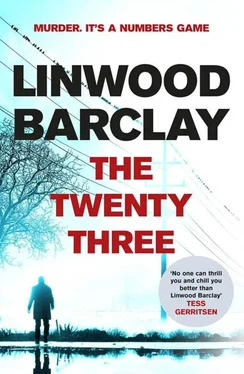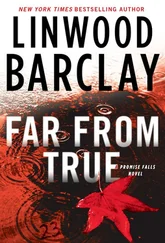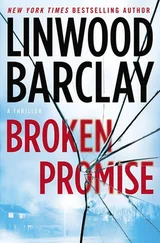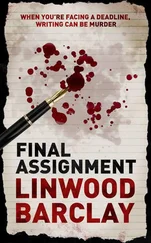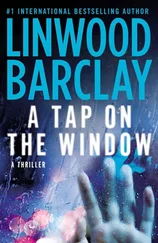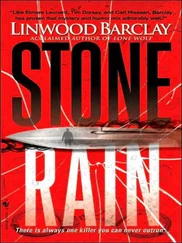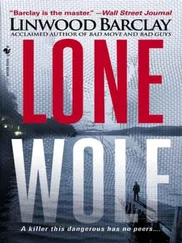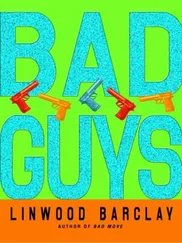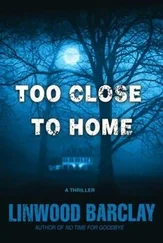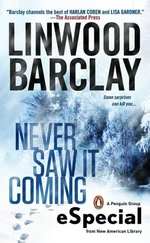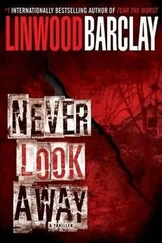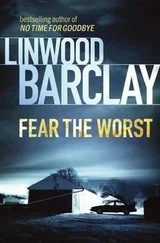“On my computer!”
“Jesus, could you all stop shouting?” Don said, sitting in his recliner.
Arlene looked at him. “You’ve been out of sorts all day.”
“I have not.”
“Oh, please.”
Don picked up an old People magazine from the table next to him, leafed through it, put it back down.
“Talk to me,” Arlene said.
Don’s lips moved tentatively. “I’m going to go see him,” he said, finally.
“You’re going to see who?”
“Walden.”
“Walden Fisher?”
He nodded. “Yeah. I’m going to talk to him.” “Talk to him about what?”
“You know.”
“Don, are you sure that’s such a good idea?”
“The other day, when he came over here, and he went with me to the school to get Ethan, and we got a bite to eat?”
“I remember,” Arlene said. “That was the day I fell.”
“Yeah, well, that was horrible. I felt sick every second I was with him. Couldn’t wait to get home. I just felt… I just felt so guilty.”
“You shouldn’t feel that way.”
He looked at his wife. “I did nothing.”
“You weren’t the only one. There were lots of people who reacted the way you did. Everyone probably thought someone else was going to do something.”
“I should have been the one who thought different,” he said. “I can still hear it.”
Arlene winced. She knew what he was referring to.
“I can still hear the scream. Olivia, in the park, screaming her last breath.”
“You weren’t even that close,” Arlene said. “There were lots of people who were closer to the park than you were. And suppose you had done something. What would it have been? What could you have done, beyond taking out your phone and calling the police? By that time, the poor girl was gone.”
“I know. That’s not the point. I know it might not have made a difference. But I didn’t know that then. And maybe there were other things I could have done. I could have run in the direction of her scream. Even if I couldn’t save her, I might have gotten a look at who did it. But no, I just stood there, assumed someone else would do something, listened for another scream, and when I didn’t hear one, I got in my car and I came home.” He paused, studied Arlene, his face questioning. “What kind of man does that?”
“You’re a good man,” she said.
He looked away. “I want to tell Walden I’m sorry.”
“All that does is open old wounds for him,” Arlene said. “Are you doing this-this unburdening of yourself-for Walden? Or are you doing it for you? Because if you’re doing it for you, then it’s selfish. Spare Walden the pain.”
“Walden’s been through so much pain he probably doesn’t even feel it anymore,” Don said. “I’d be doing it because it’s the right thing to do.”
“Think on it,” Arlene advised. “It’s been three years. Another day thinking about it one way or the other won’t make any difference.”
“I hear her in my dreams sometimes,” he said. “Screaming.”
Arlene shook her head sadly.
He asked her, “What would you do?”
“Me?”
“If you were me? No, wait. You wouldn’t have gotten yourself in the fix I’m in. You’d have done the right thing. You’d have called the police or run to help. But let’s say you’re me. What would you do today? What would you do now? Wouldn’t you feel it was time to offer an apology? Isn’t a late apology better than no apology at all?”
She still had nothing to say.
He moved forward in his chair. “What would you have me tell Ethan?”
“You don’t have to tell Ethan anything.”
“If he ever hears this story, I would hope by then that at least there’d be a postscript, where I tried to make it right.”
“You can’t make it right,” Arlene said. “If you rented one of those skywriting planes and wrote out ‘I’m sorry’ over Walden Fisher’s house, it wouldn’t make anything right. What’s done is done. You can’t change anything. You want to confess? Become a Catholic. They’ve got a place where you can do that sort of thing.”
Don stood up out of his chair. “There’s no talking to you,” he said, and wandered off into the kitchen.
Duckworth
“ITonly lasted a second,” I told the female paramedic.
“Describe it for me again,” she said.
“I was running down the driveway, and when the van got hit, I stopped, and that’s when I felt it. But it only hit me for a moment. I’m fine.”
She was wrapping a blood pressure cuff around my arm, then squeezing the bulb. “I want to check you out.”
“How’s the guy in the van?” I asked. “Rooney?”
“They’ve taken him to PFG,” she said. “He wasn’t conscious, but he was alive.”
She was tending to me on the front porch of the house where Victor Rooney rented his room. The fire truck and the van it had crashed into were still there, as were three police cars and the second ambulance to the scene. The first had already left with Rooney. No one in the fire truck had been injured.
“Really, I’m okay,” I said. All I could think about was what was in the garage. I’d already put in a call for a crime scene unit. They’d go through the place inch by inch, speck by speck. I’d warned them that they might want to bring along their hazmat suits. They’d probably have been wearing them anyway, but now there was the added possibility of sodium azide traces.
The paramedic wasn’t listening to my protests. “Your blood pressure is okay,” she said, “but I think you should come in and get checked out.”
“Later,” I said. “I’ll come in later.”
I was more excited about what we were going to find in that garage than I was worried about my health. “I think it was just muscular,” I told her. “Go. I absolve you.”
She didn’t look very happy with me, but she finally withdrew. By the time she was getting into her ambulance, the crime scene unit had arrived, as well as Wanda Therrieult.
“You okay?” she asked.
“Fine,” I said. “Never better.”
“What are we looking at?”
I pointed to the garage. “One body. I think it may be a missing Thackeray student named George Lydecker.”
An unmarked car raced up the street and squealed to a halt out front of the house. Rhonda Finderman got out.
“Chief,” I said.
“Bring me up to speed.”
I gave her the broad strokes.
“This is our guy? This is the guy that poisoned the water?”
“I don’t know,” I said. “It’s not nailed down. If they find traces of sodium azide in there, that’ll help do it. But there’s a lot in that garage that connects to my number-twenty-three theory.”
Finderman said, “What did you find?”
I told her about the squirrel traps, the mannequin parts. I’d even noticed a can of red paint, which I was betting matched the “You’ll be sorry” warning on the Ferris wheel at Five Mountains.
Rooney, I told Finderman, had a motive for harming the people of Promise Falls. The twenty-two people who’d ignored Olivia Fisher’s cries.
“You’re one short,” Finderman said. “You’re saying all that stuff in the garage links to your Mr. Twenty-three.”
“He’s the twenty-third,” I said. “He blamed himself, too.” I felt a little uneasy as I said it, though. Like trying to squeeze that proverbial square peg through a round hole. I wanted things to fit.
Finderman looked skeptical. “Maybe so. When Rooney wakes up-if he wakes up-let’s hope he’ll fill us in on a few things. At the very least, he’s a major suspect in a series of tragedies in this town.”
“As well as the murder of whoever’s in the garage,” I said.
Читать дальше
